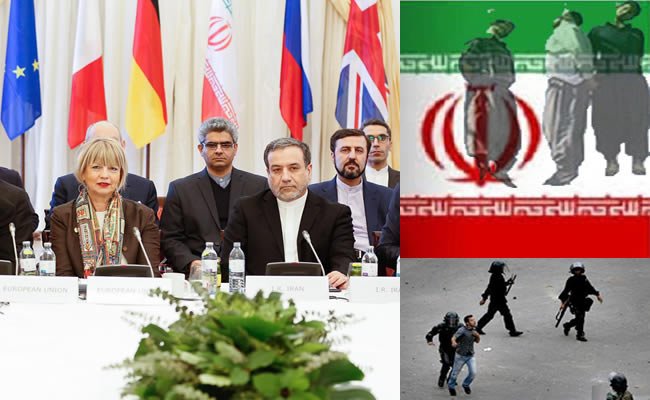
(PMOI / MEK Iran) and (NCRI): The nuclear issue must not detract from Iranian human rights records and regional expansion.
The nuclear deal, officially known as the Joint Comprehensive Plan of Action or JCPOA, has been the primary topic in recent days when it comes to Iran’s affairs. Many officials have criticized the government’s new administration’s pronouncements, which stated such commitment while simultaneously implying that the regime would not reopen negotiations in the face of Western “pressure.”
The regime’s ultimate goal is to secure a nuclear weapon
The regime’s ultimate goal is to secure a nuclear weapon, but in the meantime, it stalls negotiations and uses extortion to put pressure on Western powers. Ebrahim Raisi, the regime’s new president, has stated that his administration intends to pursue the same nuclear extortion strategy as his predecessor.
On August 5, Raisi was formally inaugurated. Following confirmation of appointments by the regime’s parliament, his whole cabinet had taken shape within a month of that date. Raisi’s reputation as a human rights offender was only enhanced by the appointments. He appointed a number of individuals who are sanctioned or have international arrest warrants, as well as an unprecedented number of operatives from the Islamic Revolutionary Guard Corps, to high-ranking government positions.
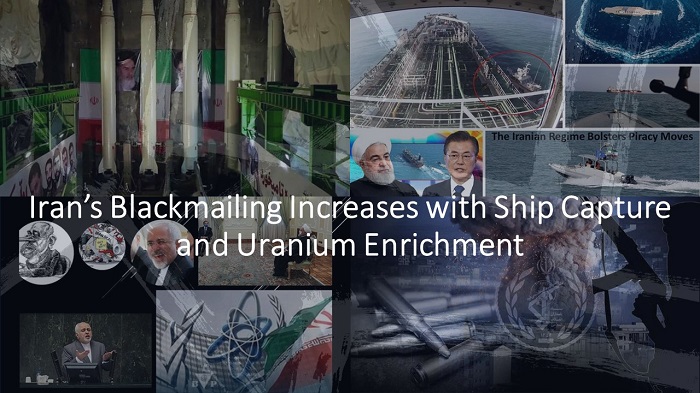
(PMOI / MEK Iran) and (NCRI): The National Council of Resistance of Iran (NCRI), and the People’s Mojahedin Organization of Iran (PMOI / MEK Iran) reported that Iran had started to enrich uranium to 20% at its Fordow nuclear site before the Islamic Revolutionary Guard Corps (IRGC) last Monday illegally hijacked a South Korean ship in the Persian Gulf.
The embodiment of four decades of mullahs
Mrs. Maryam Rajavi, the Iranian opposition leader, called the new administration “the embodiment of four decades of mullahs’ religious dictatorship and terrorism,” and predicted that its main goals would be “to confront the people’s uprising, plunder the national wealth, step up terrorism and warmongering, and expand the unpatriotic nuclear and ballistic missile programs.”
With the nomination of Mohammad Eslami as the new head of Iran’s Atomic Energy Organization, the country’s nuclear activities are expected to ramp up.
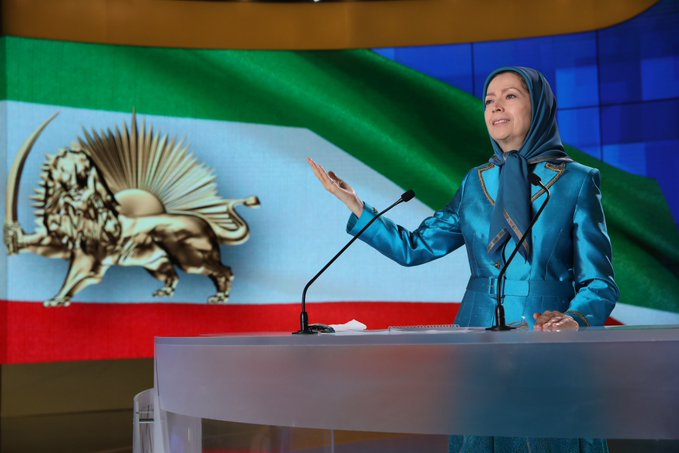
(PMOI / MEK Iran) and (NCRI): Maryam Rajavi: Khamenei is developing nuclear weapons to guarantee the regime’s survival.
The United Nations sanctioned Eslami in 2008
The United Nations-sanctioned Eslami in 2008, while he was the head of Iran’s Defense Industries Training and Research Institute, for “being engaged in, directly associated with, or providing support for Iran’s proliferation-sensitive nuclear activities or the development of nuclear weapon delivery systems.”
The Iranian Resistance has been working to raise awareness about the clerical regime’s worst crime against humanity and to highlight its ongoing impact on Iran’s human rights situation since it became clear that Raisi was on his way to being unilaterally installed as president by Supreme Leader Ali Khamenei. Raisi bears particular responsibility for the crime, a nationwide massacre of 30,000 political prisoners aimed at stamping out organized opposition to the regime, particularly from the People’s Mujahedin of Iran (PMOI / MEK Iran), as one of four officials who served on a “death commission” in Iran’s capital city during the summer of 1988.
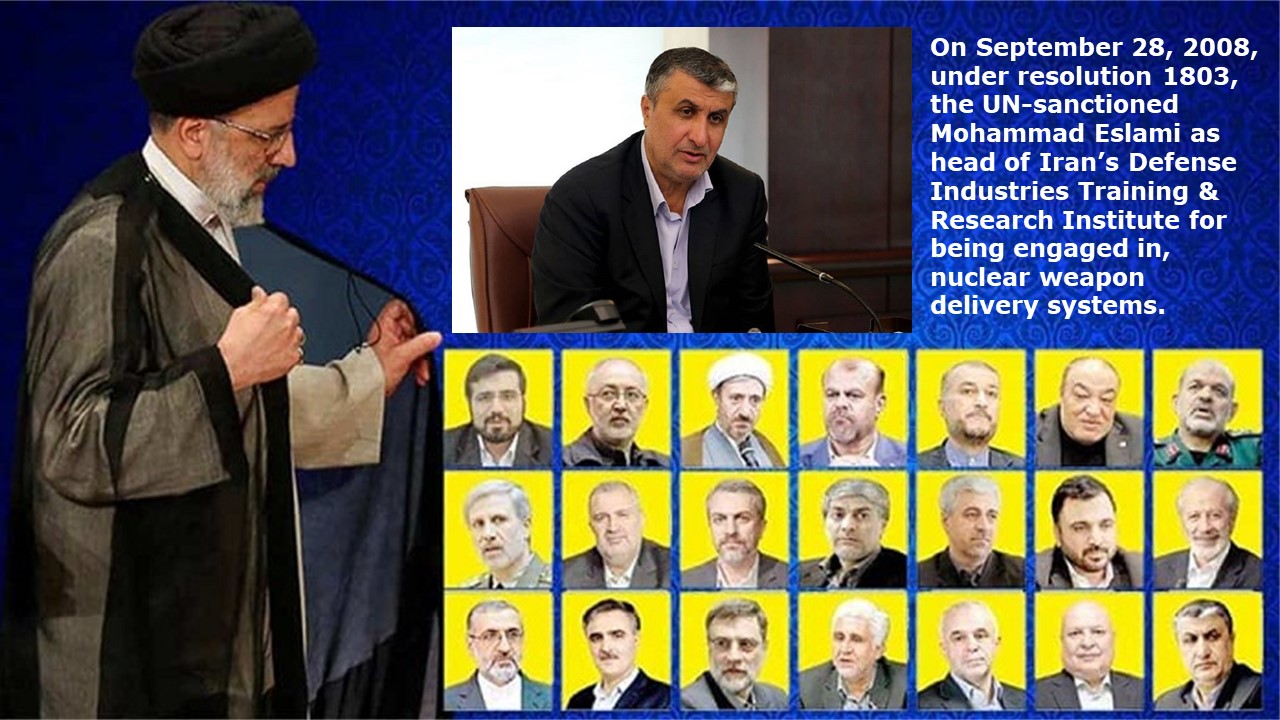
(NCRI) and (PMOI / MEK Iran): Mohammad Eslami, the new head of the regime’s Atomic Energy Organization was the principal liaison with Abdul Qadeer Khan to acquire knowledge of the atomic bomb.
The 1988 massacre
The NCRI conducted a virtual conference on the 1988 massacre in August, with over 1,000 former Iranian political prisoners and several Western human rights and international law specialists in attendance.
Those specialists explained in speeches how the religious decree that led to the massacre was plainly designed to lead to the murder of everyone who adhered to a form of Islam that differed from the regime’s theocratic extremism.
This means that the 1988 massacre “fits perfectly with the definition of article 2 of the 1948 Genocide Convention,” according to Eric David of the University of Brussels.
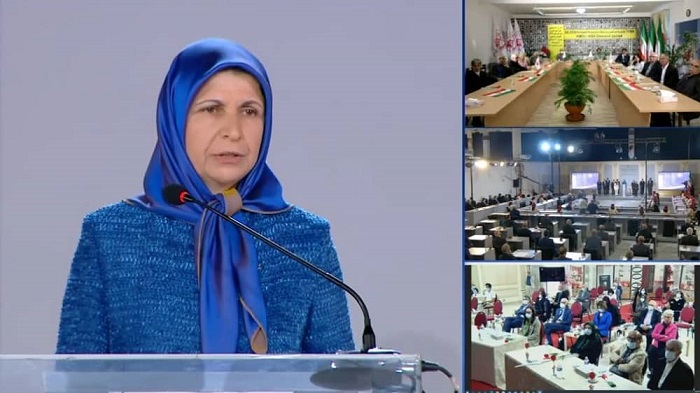
(NCRI) and (PMOI / MEK Iran): Khamenei and Raisi must be tried for the 1988 massacre, for the executions in the 1980s, for the murder of protesters, and for their murderous Covid policy.
Geoffrey Robertson, a British human rights advocate
Geoffrey Robertson, a British human rights advocate who has examined the massacre thoroughly, agreed with this view. In his own statement to the NCRI’s virtual conference, he underlined that the Genocide Convention also requires signatories to take action against known and suspected offenders – and that Raisi’s inauguration as the regime’s president symbolically strengthens this commitment.
This is one of the most visible manifestations of the regime’s assumption of impunity to date. Insofar as officials around the world have remained silent on Raisi’s appointment, they have merely served to strengthen that impunity, often diverted by blind concerns over an already-failed nuclear deal.
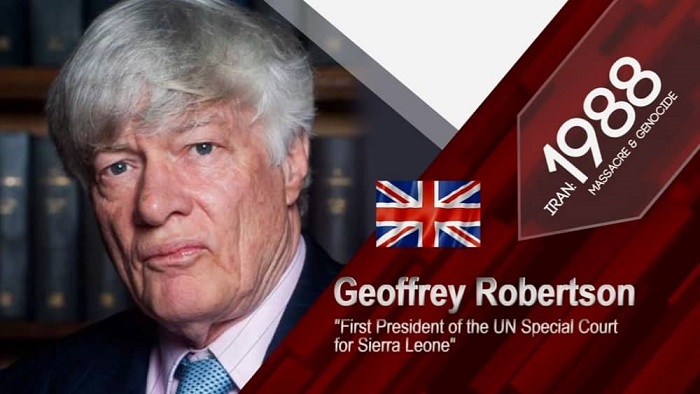
(NCRI) and (PMOI / MEK Iran): There has been a crime committed that engages international responsibility.
MEK Iran (follow us on Twitter and Facebook)
and People’s Mojahedin Organization of Iran – MEK IRAN – YouTube
